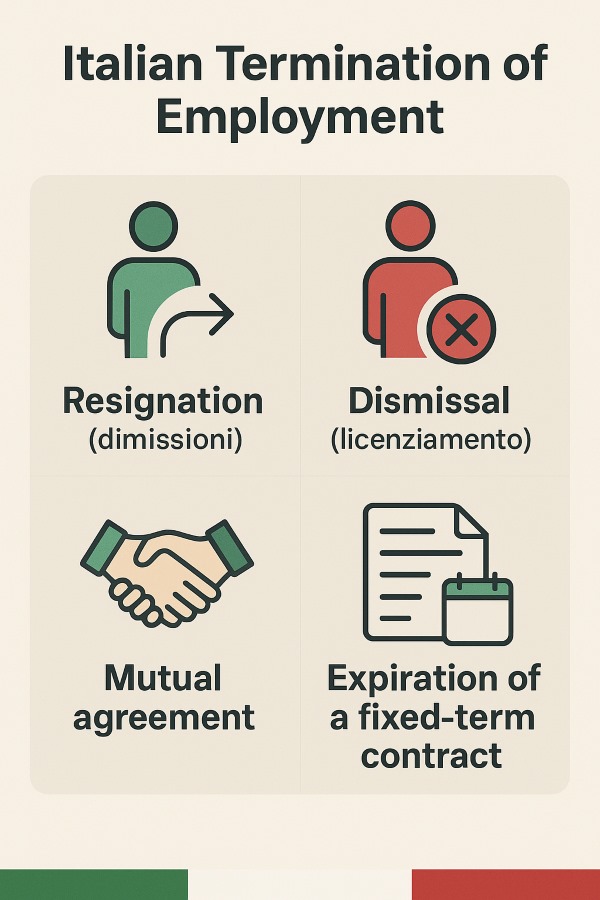When an Italian resident company distributes dividends to non-resident natural or non natural person, it must take into account the correct tax treatment related to the distribution.
The first issue to arise is the application of exit withholding taxes and its potential exemption cases. These cases are much more common today and, if not handled correctly, can lead to various mistakes..
There are four possible categories of non-residents who receive dividends from Italian sources:
- Non-residents, without a permanent establishment in Italy, other than “parent” companies based in the European Community;
- Non-residents with a permanent establishment in Italy;
- Non-resident companies based in the European Union;
- Non-resident “parent” companies based in the European Union.
For each of these categories, different laws apply.
Table of Contents
ToggleDIVIDENDS RECEIVED BY NON-RESIDENTS: CASES
NON-RESIDENTS WITHOUT A PERMANENT ESTABLISHMENT IN ITALY
The first category of non-resident entities that can receive dividends from an Italian source is non-resident entities. I refer to non-resident entities without a permanent establishment in Italy.
A withholding tax must be applied on dividends paid by capital companies to their non-resident shareholders. This is what is provided for Article 27, paragraph 3 of Presidential Decree no. 600/73.
The withholding tax is applied at the rate of 26% on the total dividend.
The withholding tax is applied because the shareholding from which the dividend derives does not relate to the permanent establishment in Italy of the foreign entity.
Non-residents are entitled to a refund, up to the amount of 11/26 of the withholding tax, of the tax that they can prove to have paid abroad definitively on the same profits. The reimbursement is obtained by certification of the competent tax office of the foreign State.
For the refund of withholding taxes suffered in Italy by non-residents, a request must be made to the Pescara Operating Centre within 48 months.
FOREIGN COMPANIES AND ENTITIES WITH PERMANENT ESTABLISHMENT IN ITALY
The second case to be considered concerns foreign companies and entities with a permanent establishment in Italy.
However, for non-resident companies and commercial entities, the income indicated in Article 23 is deemed to be produced in the State’s territory. However, for business income, profits distributed by companies or commercial entities resident in Italy are also taken into account. This is what is provided for by Article 151, paragraph 2, of TUIR.
If the non-resident company has a permanent establishment in Italy:
- The shareholding in the Italian subsidiary is directly attributable to the foreign mother. In this case, the dividend is subject to the withholding tax provided for by Article 27, Paragraph 3, of Presidential Decree No. 600/73;
- The shareholding is attributable to the permanent establishment. The dividend contributes to the formation of total income in Italy (within the limit of 5%) without withholding tax.
WITHHOLDING TAX ON PROFITS DISTRIBUTED TO COMMUNITY LIMITED COMPANIES
The payment of dividends received by foreign entities established by Community companies is peculiar.
According to Article 27, paragraph 3-ter of Presidential Decree no. 600/73, a withholding tax at the rate of 1.20% is applied.
The withholding tax applies to profits paid to companies and entities subject to corporate income tax:
- Residents of the Member States of the European Union and the States party to the Agreement on the European Economic Area;
- Which are included in the whitelist as per Ministerial Decree 4.9.96.
The application of the 1.2% withholding tax is an alternative to applying the “parent-subsidiary” Directive, which I will analyze below. The possibility of using the 1.20% rate does not apply to:
- Individuals;
- Partnerships;
- Associations or Trusts,
if not subject to corporation tax in the State of residence.
DIVIDENDS RECEIVED FROM NON-RESIDENTS AND PARENT-SUBSIDIARY DIRECTIVE
The Art. 27-bis of Presidential Decree 600/73 establishes the requirements to benefit of the so-called “parent-subsidiary” regime waiving any withholding tax on dividends paid to non-resident parties.
In order to apply the “parent-subsidiary discipline“, the foreign shareholder:
- must be a company incorporated in one of the legal forms set out in the Annex to Directive 2011/96/E.U. (in effect, a corporation);
- is resident for tax purposes in an E.U. Member State;
- is subject to one of the taxes indicated in Directive 2011/96/E.U., without benefiting from option or exemption regimes (except for those limited in time or territory).
On top of that, it is also necessary that
- The parent company owns at least 10% of the subsidiary paid up capital;
- The parent company owns the subsidiary for at least 12 months.
Upon meeting all the above conditions, the foreign company has to fill in the Form E introduced by Revenue Agency Provision no. 84404 of 10.7.2013 to provide the resident company (and withholding agent) with the necessary documentation to exempt from the withholding tax. Alternatively, it is possible to apply to the Operative Centre of Pescara to request the refund.
The first three requirements mentioned above must be certified by the foreign tax authority, the last requirement (minimum holding) has to be approved by a written declaration by the subsidiary company. Both the statement of the foreign tax authority and the recipient are made by completing Form E.
DIVIDENDS PAID TO COMMUNITY INTERMEDIATE HOLDING COMPANIES
Passive holding companies located in E.U. countries are entitled to benefit from both the Double Taxation Conventions and the “parent-subsidiary” Directive, even if they do not have a particular organizational structure.
Findings based on the fictitious nature of the Community intermediate holding company cannot, therefore, be regarded as sufficiently well-founded if they make a simplistic assumption of that nature merely because the holding company has no particular organizational structure and transfers profits to another entity.
On the contrary, the tax authorities must demonstrate the anomalous construction of the group structure if it is aimed at obtaining undue tax advantages.
CONCLUSIONS
The cases related to the taxation of dividends received by non-residents depend essentially on two variables:
- The presence of a permanent establishment in Italy;
- Residence in a white list country for the Parent-Subsidiary Directive.
It is necessary to verify several aspects of the non-application of the Italian withholding tax.




